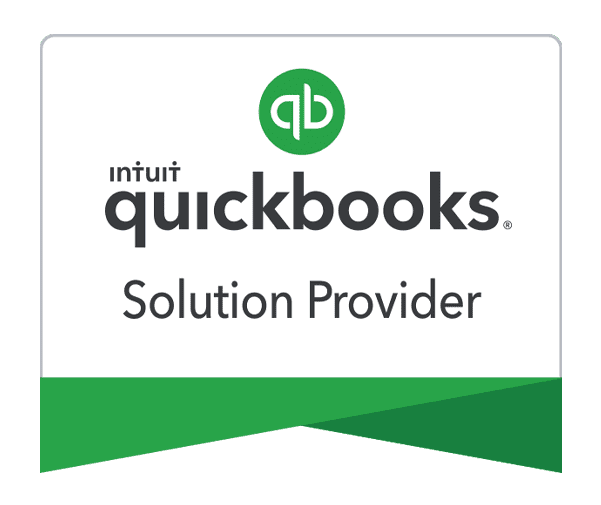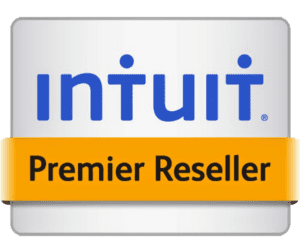Just register for the free trial below and we will send you everything you need to evaluate QuickBooks Online including 30-day access, the full 76-page QuickBooks Online Guide (details everything that you can do in the software) plus the video training library. Free end-to-end consultation and support are included so if you need any help along the way, just let us know!
20 Reasons Why QuickBooks Online is Better than Excel for Accounting

Paygration, Inc.
QuickBooks Online is designed specifically for accounting, whereas Excel is a general-purpose spreadsheet application. This fundamental difference means that QuickBooks offers a range of specialized features and benefits that Excel simply cannot match. Whether you’re a small business owner, a freelancer, or an accountant, QuickBooks Online can help you save time, reduce errors, and gain deeper insights into your financial performance.
Check out the top 20 reasons why QuickBooks Online is better than Excel for accounting.
- Automation of Accounting Processes: QuickBooks Online automates many repetitive accounting tasks, such as invoicing, bill payments, and expense tracking. This automation saves time and reduces the risk of human error, whereas Excel requires manual data entry and updating, which can be both time-consuming and error-prone.
- Real-Time Financial Data QuickBooks Online provides real-time access to your financial data. This means you can always see the most current financial information, which is crucial for making informed business decisions. In contrast, Excel spreadsheets must be manually updated, which can lead to outdated information.
- Bank Reconciliation: QuickBooks Online simplifies bank reconciliation by automatically importing and categorizing transactions from your bank accounts. This excellent banking feature streamlines the reconciliation process, making it faster and more accurate than manually matching transactions in Excel.
- Reporting and Analytics: QuickBooks Online offers a wide range of customizable reports and analytics tools. These reports provide valuable insights into your business’s financial health, helping you identify trends and make data-driven decisions. While Excel can create reports, it requires significant manual setup and advanced knowledge of formulas and pivot tables.
- Multi-User Access: With QuickBooks Online, multiple users can access and work on the same set of financial data simultaneously. This collaborative feature is particularly useful for businesses with accounting teams. Excel, on the other hand, does not support real-time multi-user access, leading to potential version control issues.
- Cloud-Based Accessibility: QuickBooks Online is a cloud-based platform, allowing you to access your financial data from anywhere with an internet connection. This convenience is especially beneficial for remote work and business travel. Excel files, unless stored in a cloud service, are limited to local access.
- Integration with Other Software: QuickBooks Online integrates seamlessly with a wide range of other business software, including payroll services, e-commerce platforms, and CRM systems. These integrations streamline workflows and improve efficiency. Excel’s integration capabilities are limited and often require complex setup.
- Invoice Customization: QuickBooks Online allows you to create and customize professional-looking invoices with ease. You can add your logo, adjust colors, and include personalized messages. While Excel can be used to create invoices, the process is much more cumbersome and lacks the polished appearance of QuickBooks invoices.
- Expense Tracking: QuickBooks Online simplifies expense tracking by automatically categorizing and tracking expenses as they occur. You can even snap photos of receipts and attach them to transactions. In Excel, tracking expenses requires manual data entry and organization, which can be labor-intensive.
- Tax Preparation: QuickBooks Online helps you stay on top of your tax obligations by tracking deductible expenses and generating tax reports. This feature makes tax preparation easier and more accurate. Excel lacks built-in tax tracking features, requiring you to create and maintain your own tax records.
- Inventory Management: QuickBooks Online includes inventory management features that help you track stock levels, set reorder points, and manage vendors. Excel can be used for inventory tracking, but it requires complex formulas and manual updates, making it less efficient.
- Payment Processing: QuickBooks Online allows you to accept payments directly through invoices, making it easy for customers to pay online. This feature improves cash flow and reduces the time spent on payment collection. Excel does not have built-in payment processing capabilities.
- Audit Trail: QuickBooks Online maintains a detailed audit trail of all financial transactions, providing transparency and accountability. This feature is particularly important for compliance and internal controls. Excel lacks an automated audit trail, making it difficult to track changes and identify errors.
- Budgeting: QuickBooks Online offers budgeting tools that allow you to create, monitor, and adjust budgets with ease. These tools help you stay on track with your financial goals. While Excel can be used for budgeting, it requires manual setup and constant maintenance.
- Mobile App: QuickBooks Online offers a mobile app that allows you to manage your finances on the go. You can check your financial status, send invoices, and record expenses from your smartphone. Excel’s mobile capabilities are limited and not as user-friendly.
- Customer Support: QuickBooks Online provides customer support through various channels, including phone, chat, and email. This support ensures you can get help when you need it. Excel, being a general-purpose tool, does not offer the same level of dedicated accounting support.
- Security: QuickBooks Online employs advanced security measures to protect your financial data, including encryption and regular backups. This level of security is crucial for sensitive financial information. Excel files, unless stored in a secure cloud service, are more vulnerable to data breaches.
- Compliance: QuickBooks Online helps ensure compliance with accounting standards and regulations. It includes features that assist with audit preparation and regulatory reporting. Excel requires manual setup and maintenance to meet compliance standards, increasing the risk of errors.
- Scalability: As your business grows, QuickBooks Online can scale with you, offering more advanced features and additional users. Excel is less scalable, becoming increasingly cumbersome to manage as your financial data and accounting needs expand.
- User-Friendly Interface: QuickBooks Online has a user-friendly interface designed specifically for accounting tasks. This intuitive design makes it easier for non-accountants to manage their finances effectively. Excel, while powerful, has a steeper learning curve and requires more advanced knowledge to use efficiently for accounting.
Conclusion
QuickBooks Online offers many advantages over Excel due to its flexibility and automation features. If you’re ready to leverage the benefits of QuickBooks Online for your business, contact our experts at Paygration. We offer free consultation, exclusive discounts, and ongoing support to help you get started. Contact us at 866-949-7267 or click the link below today!
















